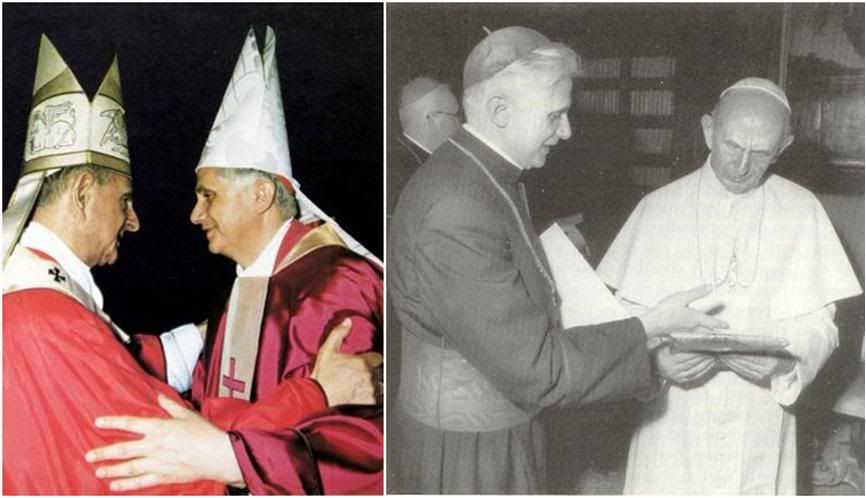 |
| Pope Saint Gregory the Great |
His exceptional, I would say, almost unique figure is an example to
hold up both to pastors of the Church and to public administrators:
indeed, he was first Prefect and then Bishop of Rome. As an imperial
official, he was so distinguished for his administrative talents and
moral integrity that he served in the highest civil office, Praefectus Urbis, when he was only 30 years old.
Within
him, however, the vocation to the monastic life was maturing; he
embraced it in 574, upon his father's death. The Benedictine Rule then
became the backbone of his existence. Even when the Pope sent him as his
Representative to the Emperor of the East in Constantinople, he
maintained a simple and poor monastic lifestyle.
Called back to
Rome, Gregory, although living in a monastery, was a close collaborator
of Pope Pelagius II, and when the Pope died, the victim of a plague
epidemic, Gregory was acclaimed by all as his Successor.
He
sought in every way to escape this appointment but in the end was
obliged to yield. He left the cloister reluctantly and dedicated himself
to the community, aware of doing his duty and being a simple and poor
"servant of the servants of God".
"He is not really humble," he
wrote, "who understands that he must be a leader of others by decree of
the divine will and yet disdains this pre-eminence. If, on the contrary,
he submits to divine dispositions, and does not have the vice of
obstinacy, and is prepared to benefit others with those gifts when the
highest dignity of governing souls is imposed on him, he must flee from
it with his heart, but against his will, he must obey" ( Pastoral Rule, I, 6). It is like a dialogue that the Pope has with himself at that time.
With
prophetic foresight, Gregory intuited that a new civilization was being
born from the encounter of the Roman legacy with so-called "barbarian"
peoples, thanks to the cohesive power and moral elevation of
Christianity. Monasticism was proving to be a treasure not only for the
Church but for the whole of society.
With delicate health but
strong moral character St Gregory the Great carried out intense pastoral
and civil action. He left a vast collection of letters, wonderful
homilies, a famous commentary on the Book of Job and writings on the
life of St Benedict, as well as numerous liturgical texts, famous for
the reform of song that was called "Gregorian", after him.
However, his most famous work is certainly the Pastoral Rule, which had the same importance for the clergy as the Rule of St Benedict had for monks in the Middle Ages.
The
life of a pastor of souls must be a balanced synthesis of contemplation
and action, inspired by the love "that rises wonderfully to high things
when it is compassionately drawn to the low things of neighbours; and
the more kindly it descends to the weak things of this world, the more
vigorously it recurs to the things on high" (II, 5).
In this ever
timely teaching, the Fathers of the Second Vatican Council found
inspiration to outline the image of today's Pastor.
Let us pray
to the Virgin Mary that the example and teaching of St Gregory the Great
may be followed by pastors of the Church and also by those in charge of
civil institutions.
Benedict XVI, Angelus, Castel Gandolfo, 3 September 2006.
